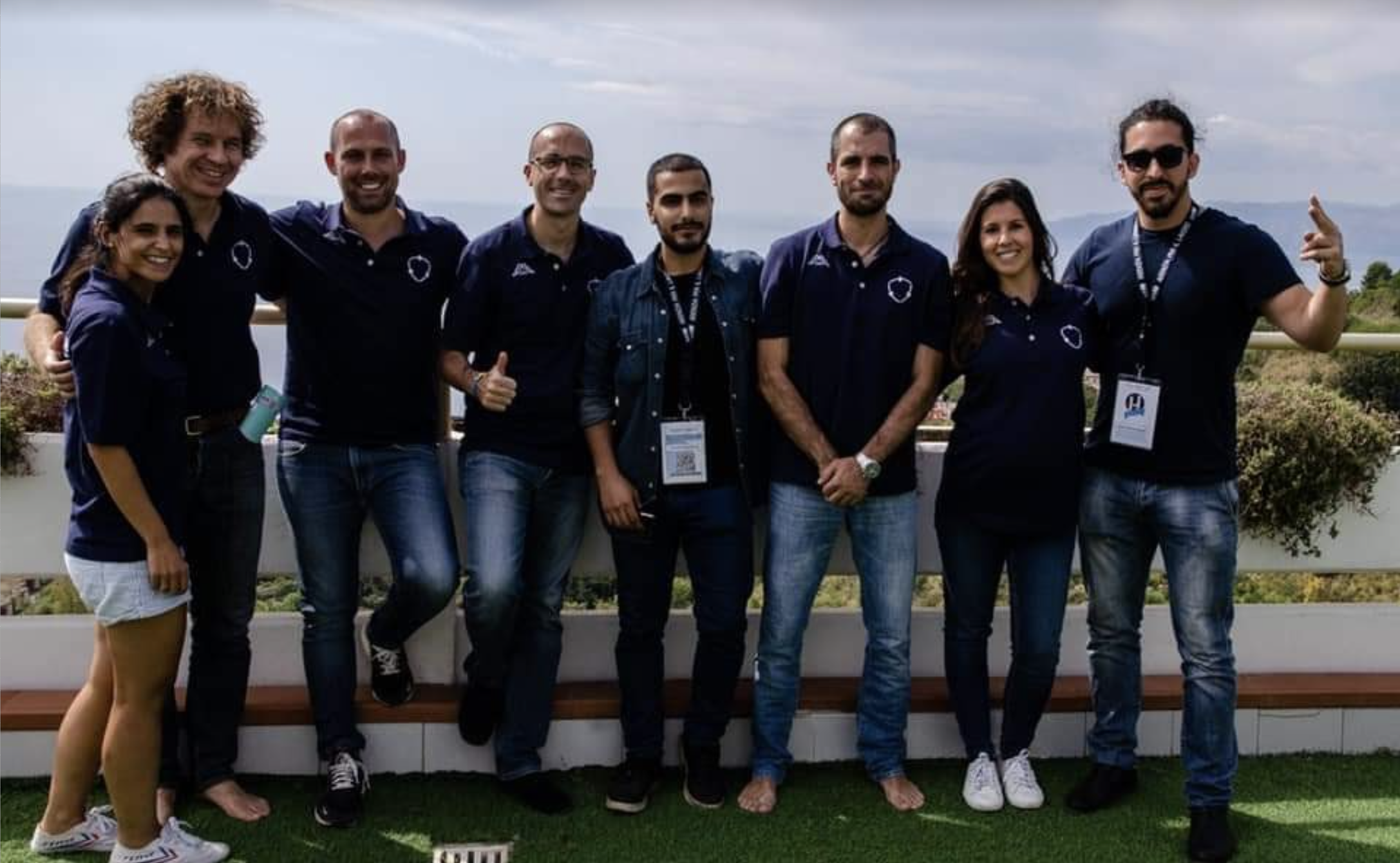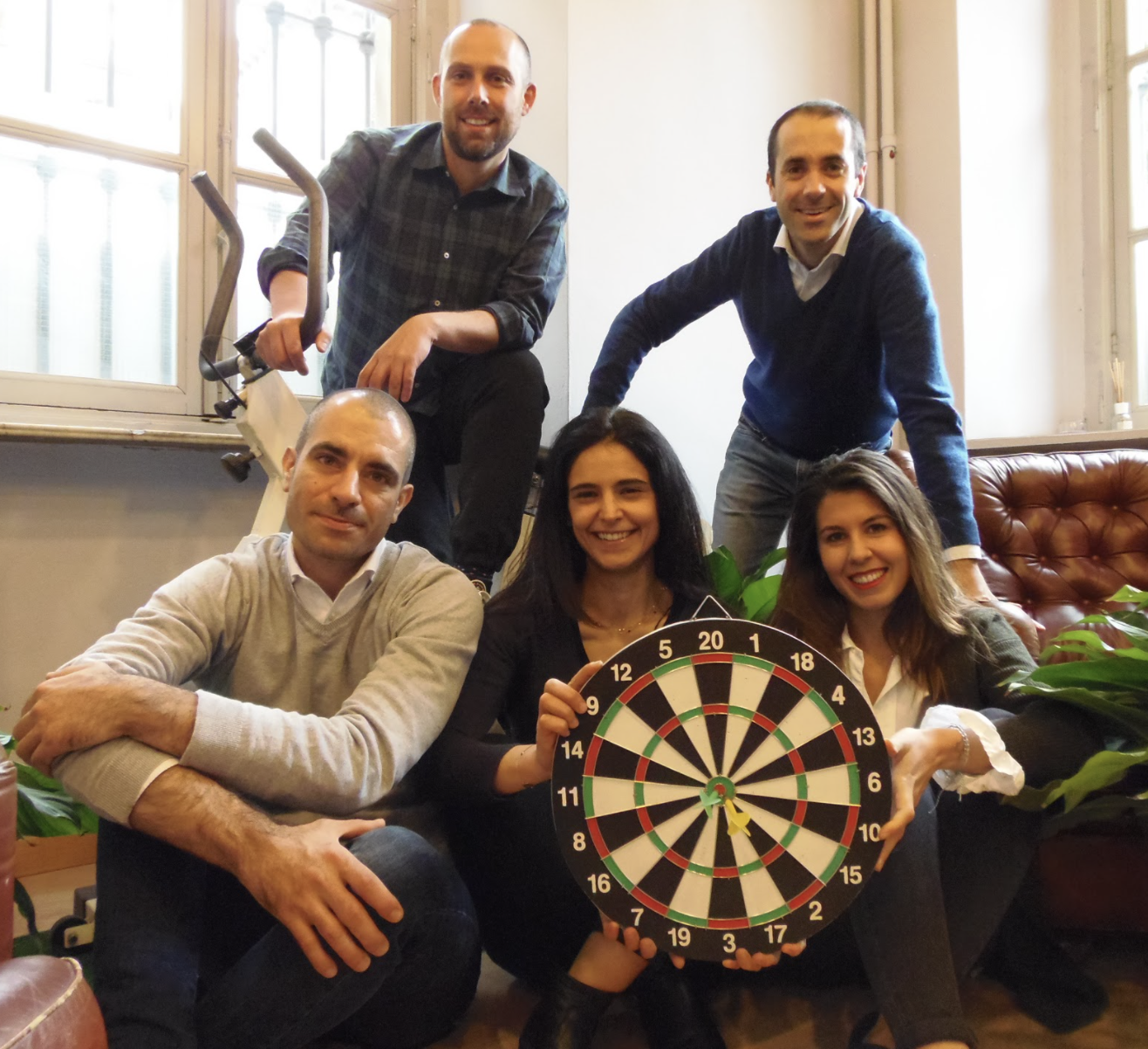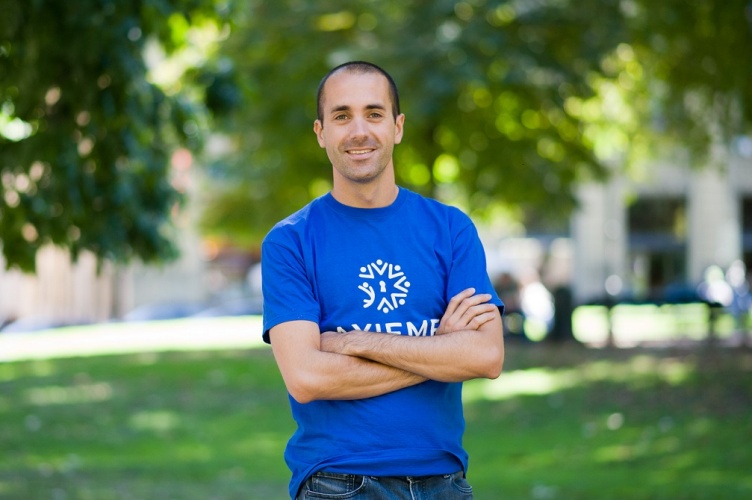On the occasion of the first edition of Insurtech Day, Forbes Italy has published a special issue dedicated to Italy's top 100 Insurtech leaders: among them Edoardo Monaco, co-founder and CEO of Axieme Group, as well as ESCP guest lecturer and Alumnus (Master in Management, class of 2009).
After completing international professional experiences in consulting, investment banking and marketing for consumer goods, Edoardo decided to specialise in the insurance sector and launched the first Social Insurance in Italy in 2016. Axieme Group is bringing digital transformation to the Italian insurance industry.
You and your company were recognised as those who are on the fast track for revolutionising the industry. How did the idea to found an InsurTech start-up come about?
In my career path, I have been lucky enough to work in various sectors: consulting, investment banking and FMCG. When I landed in the insurance sector almost by chance, in 2013, I immediately noticed the difference in business agility compared to other industries. It's a very traditional, capital-intensive and old-fashioned industry.
I have always had a hyperactive personality and while I was working in a small Insurance Brokerage firm, my curiosity pushed me – at night or weekends – to investigate on the internet or in literature the reason why this powerful sector still operated in such an old-fashioned way. I started by simply searching Google with the keyword “insurance” combined with “innovation” (in English, as I was sure that in the US or abroad something was already happening).
I came across the term “InsurTech” for the first time in 2015 (it doesn't seem so ago but it's actually ages in terms of innovation evolution) and fell in love with what other start-ups were doing around the globe, in particular with what was called “peer-to-peer insurance” or “social insurance”.
I invited a couple of friends (Matteo and Marco) to have a dinner and in front of a pizza I presented my idea to them: to introduce these new business models that were already present in other countries to Italy.
And here we are!
What is Axieme's vision?
We want to radically change the way insurance is distributed, managed and perceived by policyholders thanks to a digital, ethical and data-driven approach.
Axieme wants to reshape the insurance Italian market by introducing 'social insurance'. Can you explain more about it?
The start-up is in fact the first - and currently only - insurtech in Italy that implements a business model that rewards virtuous policyholders with a refund (called "Giveback"). We provide policyholders with a Giveback at the expiration of their policy based on simple logic "fewer claims = greater Giveback ".
This business model, already present worldwide and promoted by other start-ups in other countries, is called social insurance because it gives clients the opportunity to have a social impact:
- as a member of the community: with mutuality logic the amount of the Giveback depends on personal behaviour combined with that of other similar policyholders (who have the same coverage and belong to the same cluster);
- for donations: instead of redeeming his or her Giveback, the policyholder can choose to donate it to a non-profit organisation, the amount will then be doubled by Axieme.
The Social Insurance business model is fully compliant with some of the 2030 Sustainable Development Goals identified by the United Nations. Axieme has always set its growth process by trying to create a positive impact on people, society and the territory and by aligning its business strategies with the principles of sustainability identified at an international level.

How are your insurance solutions different from traditional insurance?
We actually provide the same level of security and coverage of other “classic” policies. Indeed, the strength and solidity of the guarantees is exactly the same, in the end our products are backed by traditional top-tier insurance companies. The main difference when choosing Axieme is instead on two fronts:
- Fully-digital user experience: our clients can quote, purchase, pay and sign insurance policies completely paperless and remotely. Very few companies can implement (for real) a fully-digital end-to-end process. We enhance user experience and delight customers in need of a digital and seamless experience.
- The Giveback: we are the only player that provides convenience through a refund on the policy premium paid. With other companies, if you don’t file any claim you just don’t get any satisfaction nor a reward.
The insurance sector is undergoing an important digital transformation. What are the key issues for the digitalization of the industry?
The challenges at stake are indeed many. I don’t want to bore you with the typical dynamics of the Industry, so I will try to summarize them briefly:
- ability to recognize talents capable of understanding digital challenges, motivating them and giving them space within the firm and the organization chart;
- knowing how to reconcile “legacy” issues with the potential given by new technologies
- investing in innovation, not only in financial terms (in which we must accelerate as Italy is far behind other European countries) but also and most of all, in terms of mindset: innovation is first of all a state of mind.
For those interested in investigating these issues further, difficult to summarize here, I am pleased to share with you the forthcoming publication of a book which I co-edited: “Insurtech 2030, il futuro è già qui”, E. Monaco, M. Michaud (Edizioni La Rosa, 2021).
What's next for Axieme?
The road is still long and we have many activities to implement ahead, such as the expansion of our product catalog, the introduction of new features available on the platform and new non-profit organizations to which our customers will be able to donate the Giveback.
From a corporate point of view, we are negotiating with investors and VCs interested in investing, and we might evaluate M&A operations in the short term: the market is very active and our aim is also to repay the trust of our investors with an exit strategy.

What are the technologies that will drive the future of insurance or the game-changers for the industry?
There’s a hype in the use of terms like “blockchain”, “artificial intelligence”, “machine learning” etc. But in my opinion, the real game-changer will be a smart implementation of APIs (Application Programming Interface) across the industry.
To make it clearer and pragmatic: think about what happened in the banking industry with the PDS2 directive. You can now download apps that aggregate account balances from your different bank accounts, merge wallets, arrange a bank transfer from an allowed third party etc.
None of this is possible – at the moment – in the insurance industry. Insurance companies’ software work on a “silos approach”: data-bases cannot communicate and this results in a painful journey for the customer each time he/she has to deal with his or her policy contracts.
Another example is the lack of “data bureau” in the industry. Insurance companies do not have access to “scoring” or “rating” of policyholders. Except for Car Insurance (and only Third Party Liability) there is no common data-base accessible by companies on claims filed by policyholders. This means that if Mr. White files a claim on his Home Policy with company A, then company B doesn’t know, and he can easily switch between companies benefitting from this information asymmetry. In the financial industry, instead, banks have all the information on clients. If you ask for a loan, the bank will immediately access “credit bureau services” (such as CRIF or EXPERIAN) to check you track-record.
Again, another example of how data-access and data-share will be THE challenge of the industry in the future. In Axieme we are already working on this.
How did what you learned at ESCP help you to achieve your goals?
Dedication, teamwork and a lot of commitment. These are the values that I learned at ESCP and that I will always carry with me.
The sacrifices made during the years of study at ESCP as well as professional experiences, even though hard and demanding, have taught me the desire to excel and the importance of being ambitious (in the most noble and pure meaning of the term) and resilient.
Do you have any tips for young entrepreneurs out there aiming to make an impact with their tech start-ups?
I don't know whether to call it a tip, but as banal and rhetorical as it may seem, I want to say something that is the simple truth: always work ethically with dedication and professionalism.
Beside technology, algorithms, artificial intelligence and any other abstruse or very technical word you can think of, remember that companies are made of people. Relationships are made of people. Business is made of people.
Time is a gentleman and these qualities, that are not always obvious, can make the difference on the market and will reward your hard work (and your start-up).

Campus






